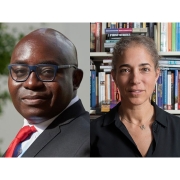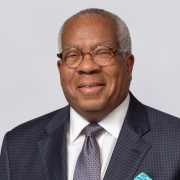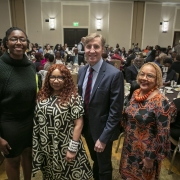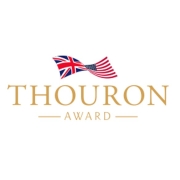Magazine: A Labor of Love
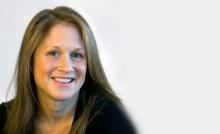
Medical journalist Randi Hutter Epstein, C’84, is fascinated with what she calls the “gray zone” of medicine—that place where answers aren’t black and white and doctors and patients must make decisions based on the best available information mixed with hunches and gut feelings. Obstetrics, she believes, is one such field and the subject of her recent book, Get Me Out: A History of Childbirth from the Garden of Eden to the Sperm Bank.
Epstein has long sought to combine her interests in science, history and writing. After majoring in the History and Sociology of Science at Penn, she completed an M.S. degree from the Graduate School of Journalism at Columbia University and an M.D. at Yale. Epstein is now an adjunct professor at Columbia and contributes to newspapers and magazines.
In Get Me Out, Epstein explores how advice about pregnancy and childbirth has changed over the centuries—from folk remedies and old wives’ tales to C-sections and fertility drugs.
Q: Why did you decide to write a book about the history of childbirth?
Epstein: When I started reporting about medicine, I became very interested in the philosophy of medicine. It seemed to me a study could prove one thing, but that didn’t necessarily change medical practice. I gathered anecdotes about all fields of medicine, but I was drawn to OB/GYN. I think because the patients aren’t sick, it makes the doctor-patient dynamic more complicated. When you are feeling good, you feel more empowered to tell a doctor that you want it done this way or that. When you feel awful, at some point you are more likely to just listen to what the doctor is telling you to do. Also, when it comes to childbirth, women are more likely to tell a doctor about the kind of birth experience they have always imagined, or the kind that their mother had. So it becomes this wonderful blend of science and culture.
Q: Is there anything that really surprised you when you began your research?
Epstein: I thought that driving ourselves crazy about pregnancy and childbirth was a modern invention. But we have an entire history of being bombarded with advice—oftentimes conflicting—and worrying about whether we are doing the right thing. One ancient guide book—written by monks of all people—told young couples they had to have simultaneous orgasms in order to make a baby. Talk about pressure—if the wife didn’t pregnant, maybe the husband thought, “Oh my god, has she been faking it all along?”
Q: How have beliefs about using pain relief in childbirth evolved?
Epstein: For a long time, the dogma was that women ought to muster up the courage to give birth without pain relief. And that was even after pain drugs were used for surgery and dentistry. Somehow, pain in childbirth was considered a sort of hazing process for motherhood or the Christian way to give birth. In this country, it was actually a dentist that gave the first pain relief during childbirth. Henry Wadsworth Longfellow’s wife wanted it, and no doctor would give it to her, so she brought her dentist into the birthing room.
But even today, many women feel guilty if they use pain medicine. It’s incredible that for such a personal and intimate moment, we are all so judgmental of each other. I’ve spoken to women who have had epidurals, and they say they feel like they have to make excuses, as if they are not as valiant as their friends who had natural childbirth.
Q: We’ve gone through periods where most women are pushing for drugs and state-of-the-art medicine as well as times when most women want to eschew all modern technology. How would you describe the scene today?
Epstein: I think women today are polarized when it comes to childbirth choices. On one end, you have women who feel that becoming a mother—rather than getting the baby out—is the big deal, so they’re comfortable using every modern technology available. On the other end of the spectrum are women who feel the process of birth is something to be cherished. They do not want to be hooked up to all these machines and devices. But women nowadays also have more opportunities. If you want to do a home birth with a midwife, there are midwives that are connected with hospitals should things go wrong. And if you want the C-section with tummy tuck, that’s available too.
— Blake Cole
